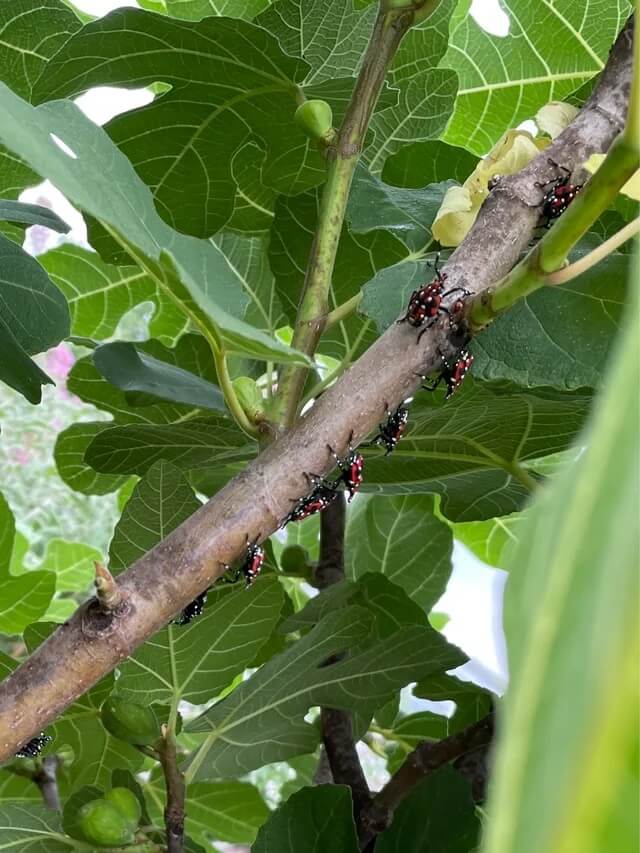When it comes to spotted lanternflies, there's no mincing words.
Kill them.
A gardener took to Reddit to ask about an unknown pest and came away with vital advice.
"What are these bugs on my fig tree and how do I deal with them?" the poster wrote alongside a photo of at least nine spotted lanternfly nymphs in the r/gardening subreddit.
One commenter called the invasive species "the devils."
"Kill them," they wrote. "Its situation where pesticide fog is totally justified. They're [invasive] and destructive and they infest and spread. Look up your state's guidance for them and learn what their little egg nests look like for spring of next year."

Another detailed a method of destruction: "Use a shop vac to suck them up. The nymphs are quick and jump away fast when t[r]ying to squish them. The power suction works because as they jump they get sucked in."
Indeed, the spotted lanternfly has become more than a nuisance since it was first, well, spotted in the United States in 2014.
Native to China, it is now found in 14 states in the Northeast, Southeast, mid-Atlantic, and Midwest.
"Juvenile spotted lanternflies, known as nymphs, and adults prefer to feed on the invasive tree of heaven (Ailanthus altissima) but also feed on a wide range of crops and plants, including grapes, apples, hops, walnuts and hardwood trees," according to the United States Department of Agriculture.
Gardeners and others can do their part to oust these bugs by inspecting trees and plants for them, checking outdoor items for egg masses, and reporting sightings outside of quarantine areas.
Egg masses, which include 30 to 50 eggs and look like smears of mud, should be scraped into a sealable container such as a plastic bag and doused with hand sanitizer or another deadly agent. Any flat surface or immobile object is a spot where eggs can be laid.
If you vacuum up nymphs or adult critters, make sure you also kill them. (This Redditor's insects were in the late nymph stage.)
The spotted lanternfly is just one of a handful of costly invasive species in the U.S., which loses $21 billion annually to the creatures.
The Pennsylvania Department of Agriculture says the grape, apple, hop, and hardwood industries are at particular risk, with up to hundreds of millions of dollars in damages and hundreds of thousands of lost jobs in the Keystone State alone.
So, take the advice of these users, or do what another Redditor did earlier this year: destroy with prejudice.
Just get rid of them.
Join our free newsletter for easy tips to save more, waste less, and help yourself while helping the planet.









